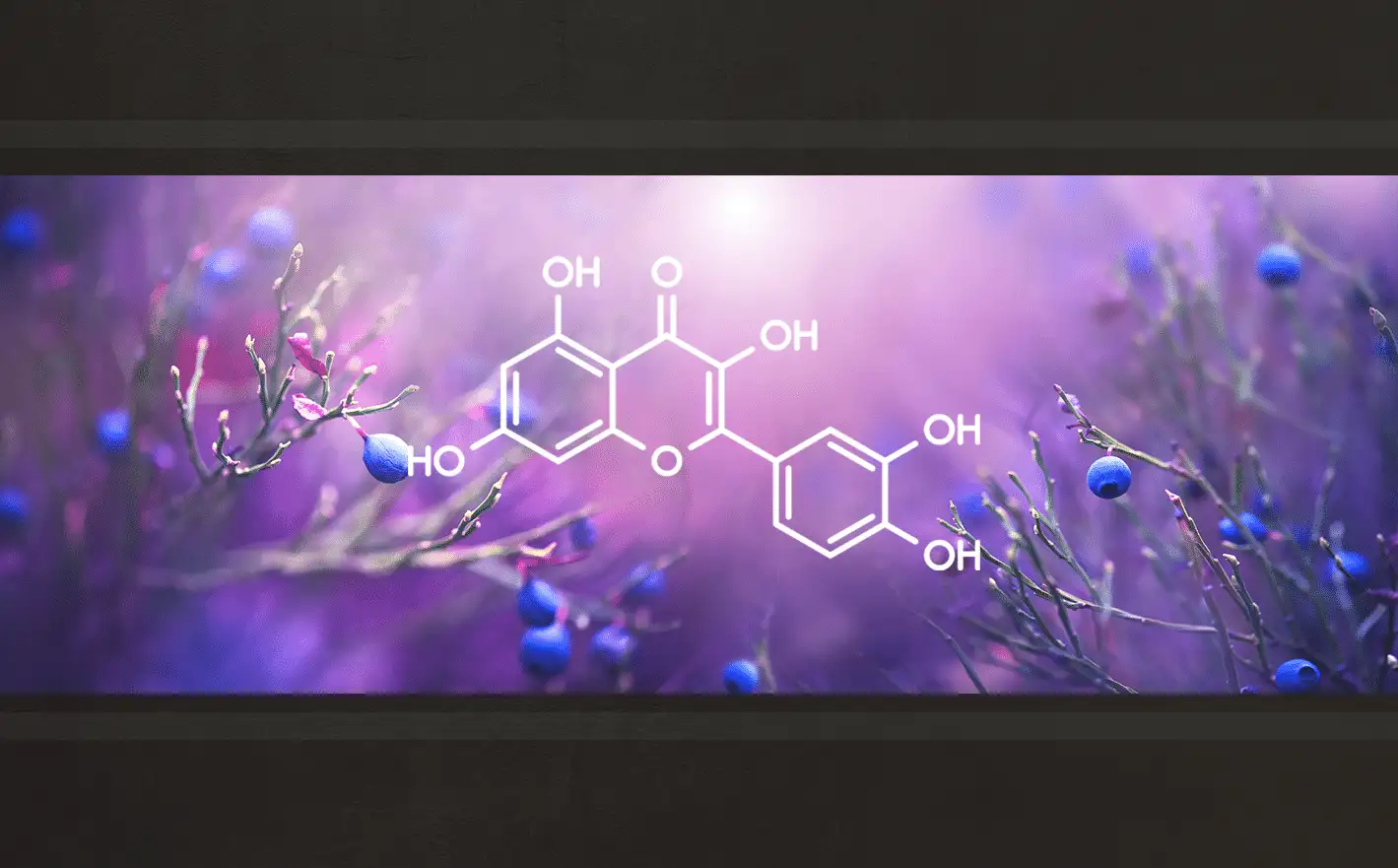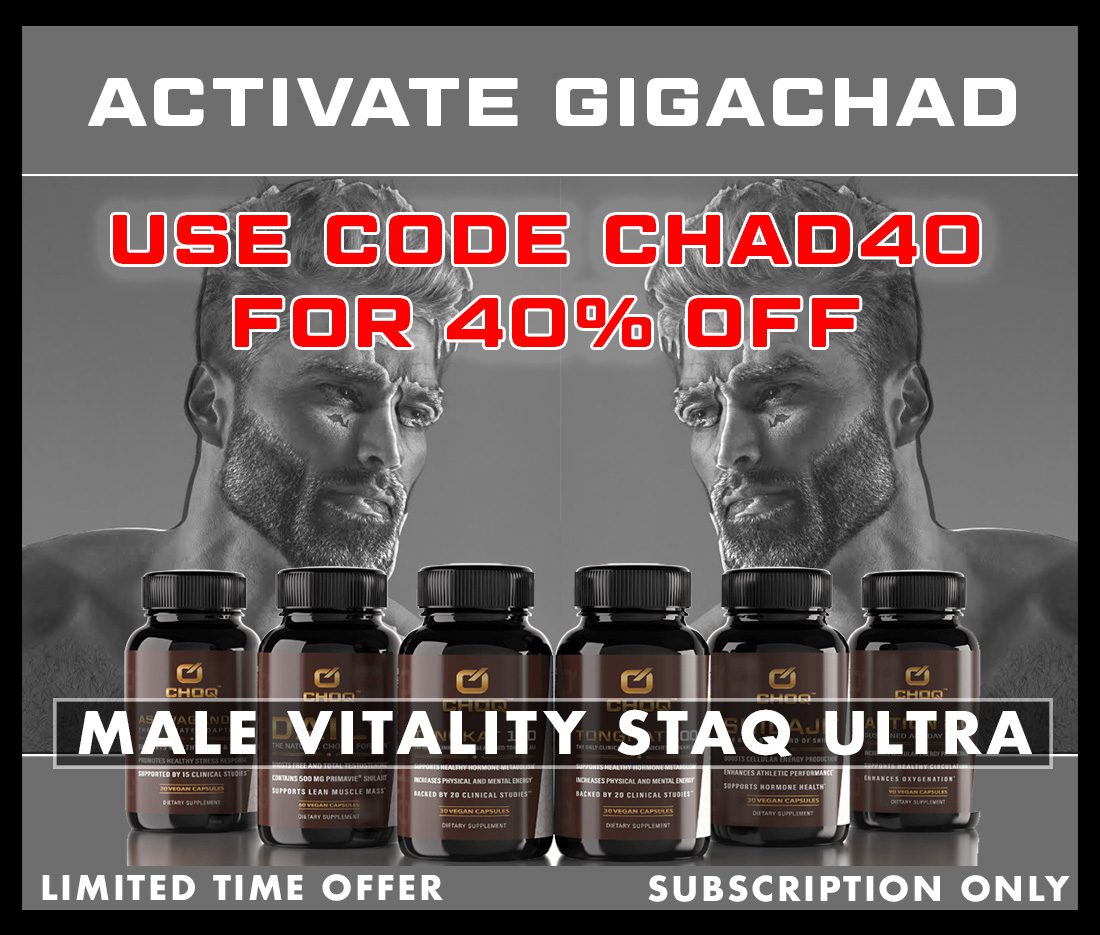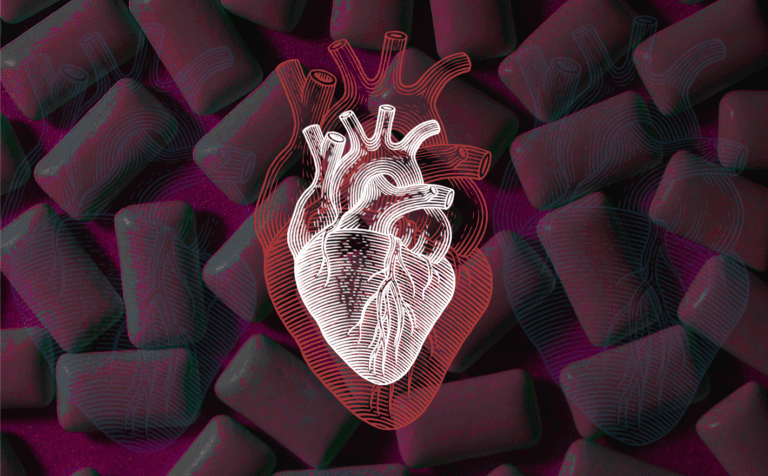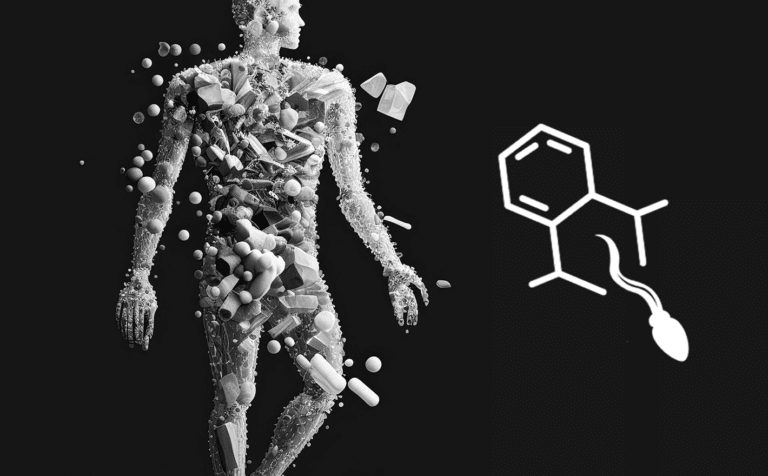Quercetin is finally getting its time in the spotlight, and it’s not a moment too soon.
With the winter approaching, the immune system is on everyone’s minds even more than it was already, which scarcely seemed possible.
As I’ve discussed in a previous article on immune-building behaviors, our gene expression is known to change dramatically according to the seasons. In fact, over 5,000 human genes (nearly 25% of the genome) vary depending on the time of year.
Why this is the case is still something researchers are trying to figure out. Many issues are known to vary seasonally, including those involving blood sugar, immunity, inflammation, and mood regulation. It’s unclear how much of this variation is due to changes in gene activation versus nutrition, exercise, and other lifestyle factors, but it’s obvious that many Americans tend to throw self-care out of the window during the winter months.
During the winter, we need all the help we can get. Researchers have theorized that cold weather may activate an instinct to fatten ourselves up in much the same way that a bear might in preparation for hibernation—hence our indomitable cravings for greasy, sugary, micronutrient-deficient comfort foods. We also tend to drink more and exercise less when it’s colder outside.
An extremely versatile bioflavonoid with wide-ranging effects on the body, quercetin is the ideal winter supplement, supporting immune health through multiple mechanisms, including regulating cellular zinc utilization, modulating inflammatory cytokines, and stabilizing mast cells (which supports healthy histamine metabolism), but it also supports a number of other systems in the body as well.
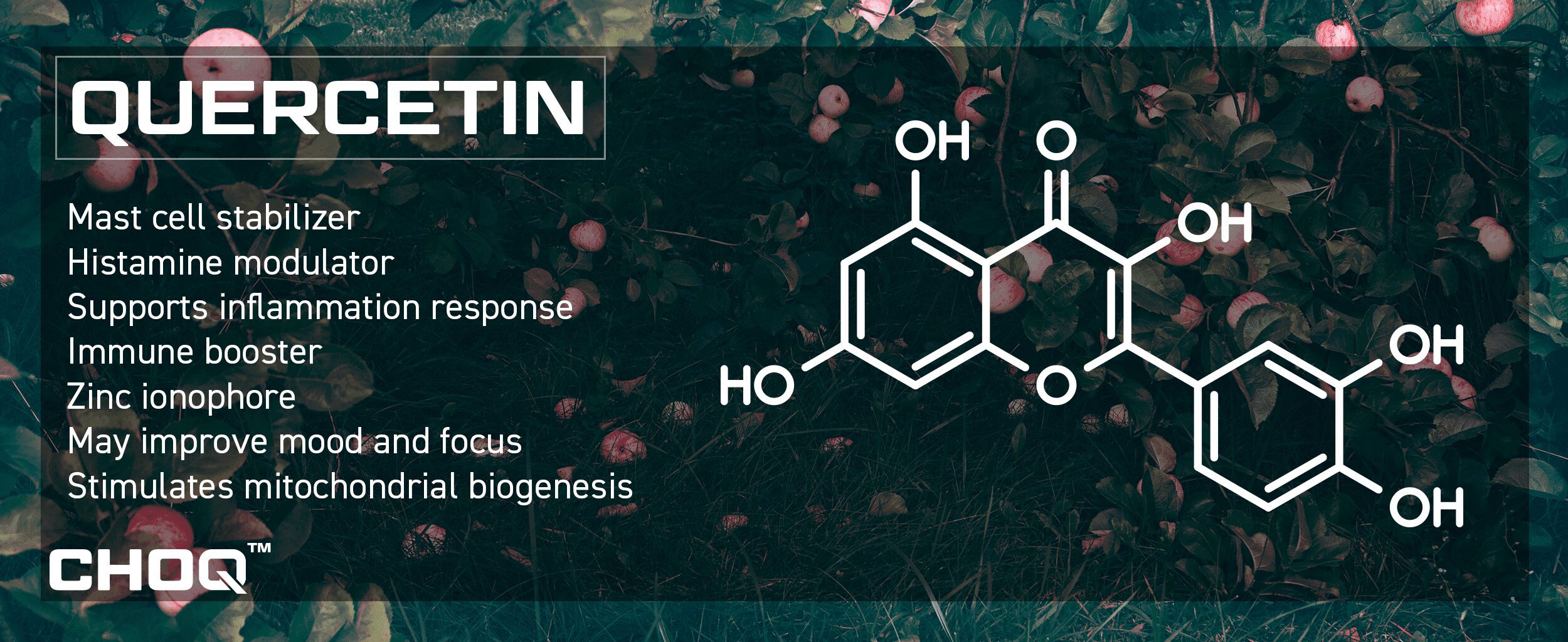
Quercetin and Other Bioflavonoids
Quercetin is known as a bioflavonoid (or sometimes just flavonoid), which means it’s part of a diverse group of over 4,000 different antioxidant molecules that occur naturally in a large variety of fruits, vegetables, and herbs. First discovered by Nobel Prize laureate Sent Gyorgyi in the 1930s, most bioflavonoids tend to be pharmacologically active and occur in large quantities in common foods such as apples, broccoli, berries, and onions.
Sorting through the various subtypes of bioflavonoids can be confusing, as their names are based on obscure chemistry terminology.
Names like flavanone, anthocyanin, proanthocyanin, flavone, and isoflavone mean relatively little to those not trained in organic chemistry, but the main point is that this is a massive group of plant molecules, many of which have profound effects on human physiology.
Other noteworthy bioflavonoids include:
- Silymarin – one of the chief active compounds in Milk Thistle that gives it it’s liver-protective and antioxidant properties
- EGCG (Epigallocatechin Gallate) – a neuroprotective compound found in tea that enhances focus by boosting dopamine and also acts as an immunomodulator
- Myricetin – a compound with structural similarity to quercetin, is found in berries, tea, and oranges, and has been researched for its positive effects on cardiovascular, immune, and neurological health
- Rutin – a phytochemical found in asparagus, apples, and passionflower that’s often used by those with varicose veins because of its powerful effects on vascular health and circulation
- Luteolin – a cardioprotective bioflavonoid found in lemons, cherries, and various spices that has beneficial effects on cognitive function and inflammatory cytokine balance
Bioflavonoids also tend to be found in foods that are high in vitamin C and are thus considered to be synergistic with it, which is why many supplement manufacturers tend to add them to their C products. Aside from their antioxidant function, most of these phytochemicals also tend to support a healthy inflammation response, and since chronic inflammation can get in the way of the body mounting an effective immune response, getting enough dietary bioflavonoids is critical to immunity.
Quercetin is the most widely researched of all the 4,000+ known bioflavonoids nature has generated, which has earned it the moniker “the Master Flavonoid”.
In fact, a simple Pubmed search for “quercetin” yields a whopping 20,191 results:
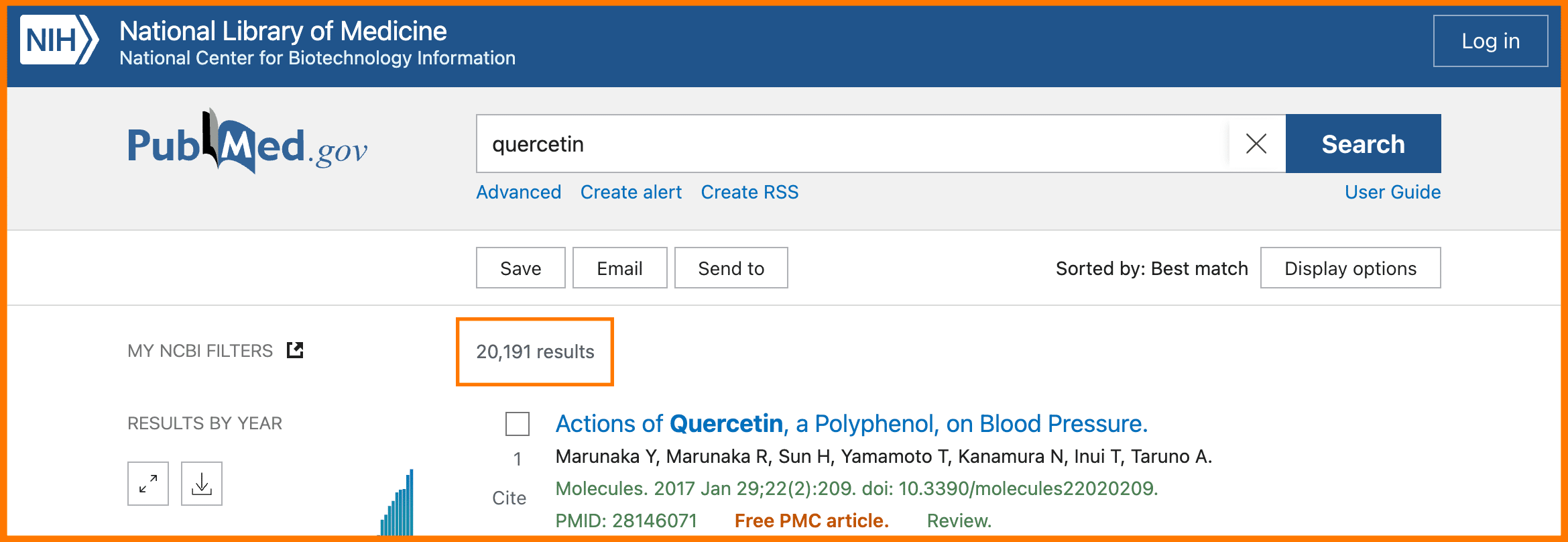
Of these 20,000+ search results, 269 are listed as clinical trials, although a handful of these results only reference quercetin but did not study it directly. The subjects of the clinical trials are wide-ranging, including topics like immunity, inflammation, blood flow, detoxification, and even sports performance.
Quercetin, Histamine, and the Immune System
To understand why quercetin is such a critical nutrient for supporting a healthy immune system, it’s important to first review a little bit of basic immunology.
As I’ve written about before in my article on histamine, this molecule has dramatic effects on the body and can do far more than simply produce tears and snot. In fact, histamine is a psychoactive neurotransmitter that can affect our mood, focus, and overall outlook on life.
Histamine is also something that can affect the balance of two very important types of immune system cells, called T helper type 1 (Th1) and T helper type 2 (Th2) cells.
Histamine tends to increase the number of Th2 cells relative to Th1, a process called ‘Th2 cell polarization’:
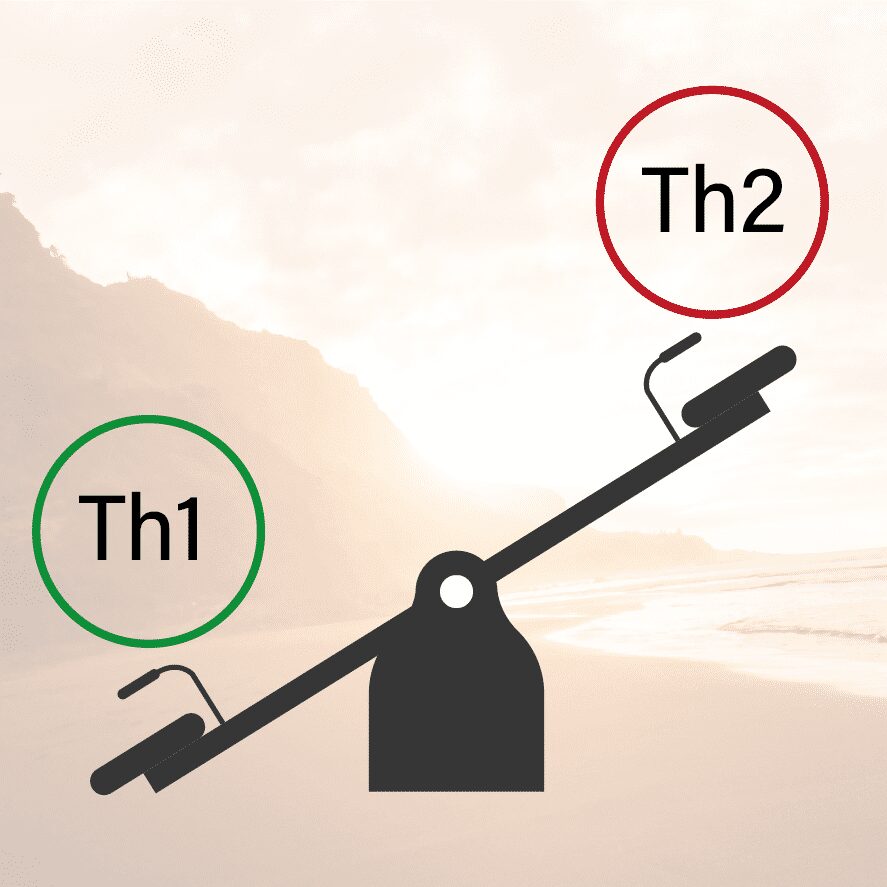
This is bad news because Th2 polarization is associated with both an overall decrease in your immune system’s ability to deal with various challenges that come its way and an increase in unproductive immune activation that simply irritates the body and accomplishes nothing, for example, itching or lethargy.
Quercetin is known as a ‘mast cell stabilizer’. Mast cells contain histamine and other compounds like cytokines and release them upon activation. Anything that stabilizes them supports the healthy release of histamine when appropriate.
When histamine levels are healthy, the immune system is healthy. Supporting healthy histamine levels is one of the ways that quercetin is able to exert such profound effects on immune health.
Additionally, quercetin is a zinc ionophore, which means that it helps the body transport zinc to the inside of the cells, where it can activate the intracellular immune system. Just because zinc is in your body, that doesn’t mean that it’s always where it needs to be. Nutrients like quercetin help to make sure that zinc gets to where it needs to be to support immunity.
Quercetin and Detoxification
Quercetin has been found through multiple pathways to support healthy detoxification.
In this experiment, it was found to enhance glutathione synthesis. Sometimes called the ‘Master Antioxidant’ in the body, glutathione is the single most critical molecule your body makes for detoxification, as it’s required in sufficient amounts for the body to neutralize heavy metals like mercury, toxic chemicals like pesticides, and free radicals that would otherwise interfere with mitochondrial energy production and DNA integrity.
Glutathione is also a powerful immunomodulator and can assist the body in maintaining a healthy inflammation response.
In addition to enhancing glutathione production, quercetin has also been documented to induce an enzyme called paraoxonase 1 (PON1).
PON1 can eliminate organophosphate pesticides and nerve gases from the body (which—fascinatingly—are extremely similar and even have the same mechanisms of action). It also enhances the detoxification of estrogens and certain pharmaceuticals.
People with autism tend to have reduced PON1 activity, which is consistent with their sensitivity to a wide variety of chemicals.
Endocrine-disrupting chemicals like pesticides, plastics, and flame retardants are unfortunately ubiquitous in modern life. If you’d like to dig deeper into the ways that these chemicals affect our reproductive systems, you can check out my article ‘Hormones Under Fire: Worse Living Through Chemistry’.
Quercetin, Athletic Performance, and Energy
Multiple studies have confirmed that quercetin can benefit athletes. One study from 2018 documented enhanced neuromuscular performance during resistance training.
Although exercise is generally extremely beneficial for health, intense and prolonged exercise can be hard on the immune system, especially something that goes on for 90 minutes or more, although this can also depend on the weather and air quality. In a study that looked at professional cyclists, quercetin was able to support upper respiratory tract health and maintain a healthy immune response after intense exercise.
And in this study, triathlon athletes were given a specialized, highly bioavailable form of quercetin called a ‘quercetin phytosome’ and then evaluated for post-run muscular pain, cramps, and recovery time, all of which improved with supplementation.
Quercetin can also enhance mitochondrial function, which makes it an ideal choice for athletes but also anyone looking to support energy levels without the use of stimulants. Specifically, it’s able to induce mitochondrial biogenesis, meaning that it helps your cells produce more mitochondria so that each one doesn’t have to work as hard to produce the same amount of total ATP for the cell.
Bioflavonoids are Your Friends
In general, a diet rich in bioflavonoids is extremely beneficial for immunity, detoxification, cognition, and overall vitality. Although they’re not technically vitamins, some have argued that they should be. In fact, they were once collectively referred to as ‘Vitamin P’.
Quercetin is not particularly bioavailable, however, which is why we use a 20x enhanced absorption form in CHOQ Armor. If you’re going to take quercetin, take it as a phytosome in order to get the best bang for your buck.
It’s of course recommended to get as much as you can from fruits, vegetables, herbs, and spices, but if you’re looking to enhance immunity, detoxification, energy production, and achieve maximum cellular protection from free radicals, it’s best to get it from both food and supplements.
Nature has supplied us with an incredible bounty of healing plants, and modern science has barely scratched the surface of all she has to offer. As we continue to evaluate various different plant compounds for their beneficial effects, we’ll likely spot countless more of these critical bioflavonoids.
For now, quercetin still remains the most researched of them all, and–due to its potency and safety–should be a part of everyone’s immune support regimen.

